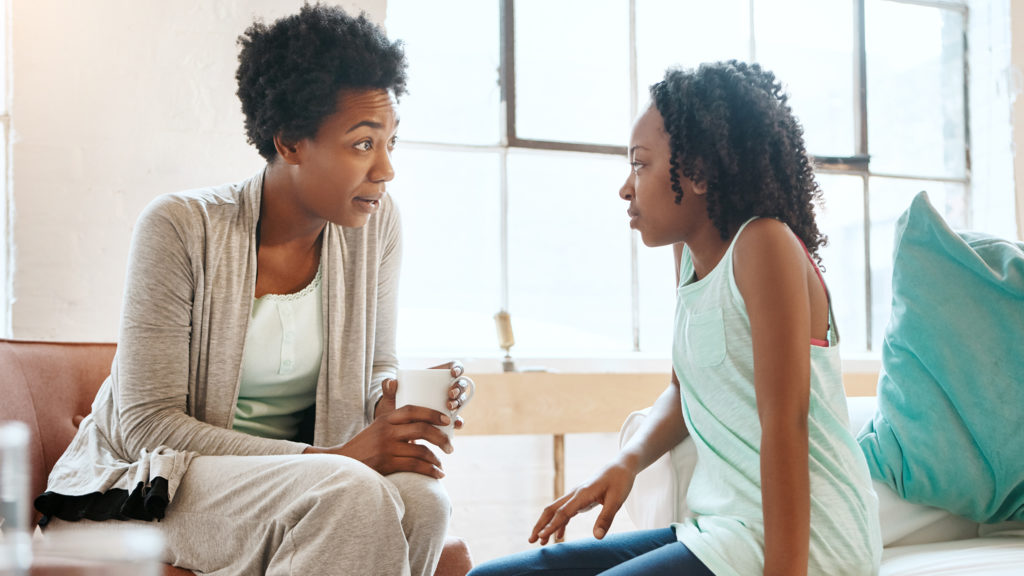The internet and other forms of mass communication have made everybody – including the kids – to be aware of the deadly coronavirus pandemic. Sadly, there is so much inaccurate information going around, such as the infamous claims that Africans are immune to the virus and that young people are not being affected. Therefore, as a parent, you must ensure your children are aware of the correct information to keep them safe and avoid or reduce anxiety.

The following are the things you should let your children know about coronavirus diseases (Covid-19) – according to UNICEF and some reputable publications.
- Provide accurate information and debunk rumours
Due to increased news coverage and wide discussion of coronavirus in the general public, your children probably know some things about the virus. Some of what they know would be correct, but they may also have come across fake news which they believed to be true.
So, what you want to do is to find out how much they already know and how accurate the information is. Listen carefully as they share what they know about the virus and use the opportunity to correct any misconceptions.
To get accurate information about coronavirus, check out these UNICEF and WHO publications. If you live in Nigeria, follow the official Twitter account of the Nigeria Centre for Disease Control to get the latest updates about the pandemic in the country.
When talking about the virus with your kids, be honest about the information, but also present the positive light about the virus. Let your children understand that even though the virus appears to be spreading fast, some people have also recovered, and are currently hale and healthy.
- Talk about personal hygiene
Providing your children with accurate information would help make them less anxious. But if you want to keep them safe from coronavirus and other infectious diseases, you need to reiterate the importance of personal hygiene.
Encourage hand washing as well as coughing and sneezing into an elbow. Deborah Farmer of PBS suggests introducing a game called “Catch that Cough.”
In the game, you would ask your kids to always catch their cough in the elbow, and when they do, you cheer them by saying, “You caught it! That’s what germ busters do!” If they forget and catch the cough in their hands, the kids would be required to wash their hands with soap and water and the game will start again.
- Encourage your children to look out for symptoms
According to WHO, the symptoms of Covid-19 include fever, tiredness, dry cough, nasal congestion, runny nose, sore throat, and diarrhea. Therefore, when talking to your kids about coronavirus, let them understand that it is a respiratory virus and that they should avoid going close to anybody showing these symptoms, or generally avoid going to crowded places.
In the same vein, encourage them to report to you, if they experience the symptoms in themselves.
- Talk about stigmatization
Many schools across the world have now closed down, but some proactive ones have adopted virtual learning so that students can continue to learn from home. However, before the close down, there were reported cases of stigmatization in some countries. When schools open again, the stigmatization would likely continue. So, as a parent, check to know if your children are neither experiencing stigmatization nor contributing to stigmatization because of the virus.
Make your children realize that even though the virus is prevalent in some countries, that doesn’t mean all citizens of the country are carriers that should be stigmatized. Doing this would ensure that when schools open, there wouldn’t be cases of bullying against students who are citizens of the most affected countries.
- Talk about the heroes finding a cure
At the time of writing this article, there is no official cure for coronavirus, but scientists all over the world are working hard to find a cure. It has also been reported that a delegate of Cuban doctors and nurses have landed in Italy, one of the most impacted countries by the virus. By sharing the stories of these scientists and health workers with your children, you will give them confidence that some people are working compassionately in the frontlines of this pandemic to help stop the outbreak.
Just as the Ebola virus came and was eventually contained, we believe that coronavirus will be contained too, hopefully very soon. But in the meantime when anxiety is building up in the world, what you can do to safeguard your children is to provide accurate information, give hope and follow the advice of local and international health bodies.

